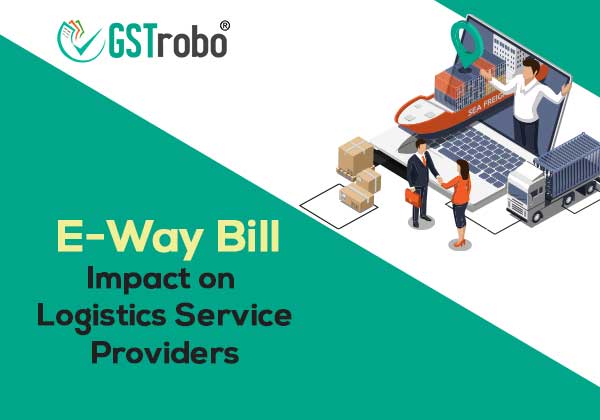E-Way Bill Impact on Logistics Service Providers
Logistics holds the key to the development of the e-commerce industry. Moreover, logistics is one of the measuring rods that is now been used to determine the e-commerce operators’ performance and customer satisfaction services. In India, half of the e-commerce operators are managing their logistics by traditional logistics service providers such as DTDC, India Post, DHL, FedEx, and so forth. And the other half have developed their in-house logistic system. So, let us help you look into the e-way bill impact on logistics service providers with this blog.

Types of Logistics Service Providers
- In-house Logistics System such as Ekart.
- Traditional Logistics Service Providers such as DTDC.
- E-commerce Centric Logistics Service Providers such as DHL, FedEx.
E-Way Bill Rules for Logistics Service Providers
As we already know that the e-commerce business includes the continuous movement of goods from one place to another. So, keeping the transactional volume in mind, the Government of India made some amendments to the e-way bill provisions to provide relaxations to
- E-commerce centric logistics service providers,
- Traditional logistics service providers, and
- Less than Truckloads (LTL) Companies
As per the e-way bill provision, the above-mentioned logistics service providers do not have to generate an e-way bill for the intra-state movement of the consignment (via roadways). However, it shall be noted that the value of the individual consignment should not exceed INR 50,000.
In addition, logistics service providers do not have to regularly update the vehicle details for intra-state movement of consignment within 50 Km from their warehouse.
E-Way Bill Impact on Logistics Service Providers
E-way Bill Generation and Documentation
A person in charge of the vehicle that carrying the consignment must hold–
- Copy of an e-invoice or an IRN
- Copy of an e-way bill or an e-way bill mapped to the RFID (Radio Frequency Identification Device) embedded on the vehicle carrying the consignment.
In addition, if the circumstances require, the commissioner or additional commissioner may ask the person in charge of the vehicle to carry the following documents:
- A bill of entry or bill of supply.
- A Delivery Challan
Verification of Documents and Vehicles
- The commissioner or additional commissioner can authorize a proper officer to track the vehicle and verify the documents such as the e-way bill or the e-invoice for all intra-state and inter-state movement of goods.
- The commissioner or additional commissioner can install RFID readers at any place for verification of goods. RFID readers will help the proper officer track and verify the e-way bill mapped on the vehicle carrying the consignment.
- The commissioner or additional commissioner can authorize a proper officer to physically verify the documents and vehicle.
Goods Inspection and Verification
- The authorized officer needs to record a summary report of all the inspected goods within 24 hours in Part A of GST INS-03. However, a final report needs to be recorded by the authorized officer within 3 days of the goods inspection and verification.
- Once the goods are physically inspected and verified in a State they cannot be verified or inspected again in that particular State. However, in the case of tax evasion, the goods can be verified multiple times by the proper officer.
Detention of Vehicle
In case of a proper officer detains any consignment for more than half an hour (30 minutes) without a proper reason, the person in charge can file a Detention Report in GST EWB-04 Form.
